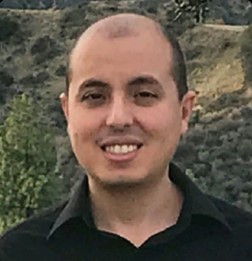*** Please note, each row and course# listed below is a separate, complete course. ***
Making Properties and Profits: Twin Screw Extrusion Seminar
| Course# | Date | Time | Location |
|---|---|---|---|
| 218-1485 | 02/16/2026 - 02/18/2026 | 8:00 AM - 11:00 AM | Microsoft Teams |
| 218-1486 | 09/21/2026 - 09/23/2026 | 8:00 AM - 11:00 AM | Microsoft Teams |
| 218-1575 | 02/16/2027 - 02/18/2027 | 8:00 AM - 11:00 AM | Microsoft Teams |
| 218-1576 | 09/21/2027 - 09/23/2027 | 8:00 AM - 11:00 AM | Microsoft Teams |
Online Registration
CEU's: 2.5
Instructor: Dr. Sylvain Seif
Course Overview
This course focuses on the application of intermeshing co-rotating extruders in compounding applications. Training is directed towards machine operators, process engineers and supervisors, as well as product development scientists in both research and manufacturing environments. Participants are reminded that the goal of compounding is to produce properties, not pellets. The goal of this seminar is to explain how twin-screw extruders create properties. Usage of mineral fillers and processing aids to increase throughput and reduce costs will also be elucidated.
Interactions between screw design, raw materials and process parameters are presented in such a way that both experienced users and novices will benefit. Common unit operations are explained in practical terms with no prior knowledge or experience required. Upon completion of the training, participants will return to the workplace armed with techniques to improve quality, production rate and yield. Participants will return to the workplace prepared to design and optimize screw configurations, as well as develop operating conditions to meet compound specifications.
Online Course Requirements
We want you to have a great experience participating in our remote (online) courses, and for that, you’ll need the right equipment and internet connection.
Minimum needs are:
- A broadband internet connection that has at least a 2 Mbps upload and download speed.
- A computer (PC or Mac) that can support the latest web browser versions.
- At least 4 GB of RAM and adequate hard drive space.
- A microphone and a speaker.
- International Students: For virtual (online) courses, an additional fee will be assessed to cover the cost of shipping the professional binder (presentation slides), to your address. The cost of international shipping can be significant.
For more information, visit our Online Course Requirements webpage.
Instructor Biography:

Dr. Sylvain Seif has over 15 years of industrial R&D experience in Polymer Engineering, spanning several different areas in the field, and over 12 years of academic teaching experience. He completed a BS in Mechanical Polymer Engineering in 2005 followed by a PhD in Polymer Engineering degree in 2009 from The University of Akron in OH, USA. After graduation, he joined INDEVCO Group, a multinational packaging and consumer goods firm, starting up an R&D Center called “PACT”- Polymer Application Center for Technology- for the entire flexible packaging and compounding divisions of INDEVCO, which consists of 10 manufacturing facilities spread across the globe. He has also taught several engineering courses at the university level, and started R&D collaborations with 5 different universities, refereeing over 30 Masters and Final Year Projects, and being a jury member on all these projects. In 2017, as Senior Technical and R&D Expert at PACT, he helped the INDEVCO R&D Center attain ISO 17025 accreditation for lab testing.
Since 2022, Dr. Seif has been working at an environmentally conscious start-up company, Novoloop, in California, managing the polymer processing lab; having expertise in operating the twin screw compounder, injection molding and co-extrusion cast film machines. Here, he optimized the processing and properties of various durometer TPUs, whereby the polyester polyols are derived from PE recycled waste. He is also very familiar with structure-processing-properties relationships of polymers and their composites, with a strong know-how in lab testing methods for mechanical, rheological, thermal and physical properties. Moreover, Dr. Seif has over 10 academic publications and 3 patents in the polymer field, and has a strong passion for teaching and doing research and development in sustainable solutions.
Twin-Screw Extruder Design:
- Introduce concepts responsible for creating properties on co-rotating twin screw extruders
- Degree-of-fill, shear rate, residence time/residence time distribution, heat transfer
- Dispersive vs. distributive mixing
- Influence of extruder configuration on compounding performance
- How machine design impacts mixing (e.g. d0/di, co versus counter rotation, etc.)
- What is optimum extruder configuration?
Process Design:
- Description of unit operations: feeding, melting, mixing, venting, pressurization
- Introduction of the process model - role of specific energy
- Interaction of process parameters
- Process optimization
The "Art" of Screw Design:
- Functional description of the working principles for each element type (conveying, mixing)
- Overview of available screw element designs
- Characterization of dispersive and distributive mixing elements
- Selection of the optimum screw type for each of the unit operations
Best Practices:
- Documentation
- Start-up, Operation, Shut-down, Purging
- Screw assembly/disassembly
- Preventive Maintenance
- Safety
Process Troubleshooting:
- Diagnosis of compounding instabilities with respect to
- Consistency (i.e. within-lot)
- Reproducibility (i.e. lot-to-lot)
Usage of Fillers and Processing Aids to Reduce Costs
